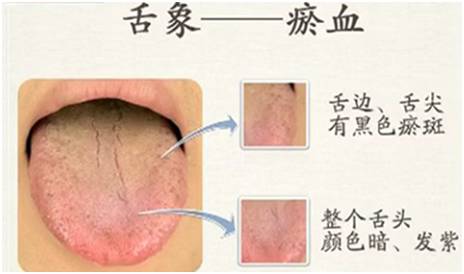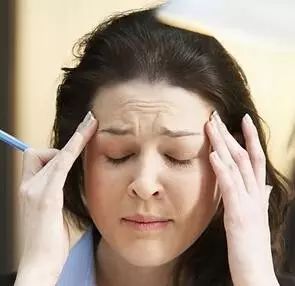Why do we still feel tired even after a long sleep? Experts explain that frequent feelings of fatigue and exhaustion may be caused by blood stasis. So, what is blood stasis? What types are there? How can we improve the condition of blood stasis? Below, we introduce some common knowledge about blood stasis.

Types of Blood Stasis in Traditional Chinese Medicine: Qi Stagnation Blood Stasis and Cold Congealing Blood Stasis
In Traditional Chinese Medicine (TCM), blood stasis can be divided into two types: Qi Stagnation Blood Stasis (qi yu xue yu) and Cold Congealing Blood Stasis (han ning xue yu). Qi stagnation blood stasis is often related to emotions; in addition to experiencing symptoms of blood stasis, women may also experience breast tenderness, irritability, and even monthly episodes of ‘neurogenic headaches’ before menstruation.
Cold congealing blood stasis is associated with exposure to cold in the pelvic cavity, leading to a condition known as ‘Pelvic Congestion Syndrome’. Women have multiple ovarian veins in the pelvic cavity, which can lead to slow blood flow and stagnation if not properly warmed. If the pelvic cavity is exposed to cold, the blood can become congealed, resulting in blood stasis.
Additionally, the pelvic cavity contains the bladder, reproductive organs, and rectum, which are interconnected. Any obstruction in one of these systems can affect the other two. To improve blood stasis, it is important to keep the pelvic cavity warm and to drink Dang Gui (Angelica Sinensis) tea to invigorate blood circulation.
Blood stasis is one of the common causes of fatigue in modern women. When blood circulation is obstructed, metabolic waste cannot be expelled from the body, leading to fatigue and a decline in overall mental well-being. Initially, pelvic blood stasis may only cause feelings of tiredness, which become more pronounced after prolonged sitting or standing, and may also lead to headaches, irritability, and symptoms similar to premenstrual syndrome.
Some women with blood stasis may experience significant tenderness on the sides of the abdomen, pelvic and lower abdominal heaviness, and pain in the thighs and hips. They may also experience menstrual pain, and despite a diet rich in vegetables and fruits, they may still suffer from constipation. These women often do not have identifiable medical conditions when seeking treatment.
Invigorating Blood and Resolving Stasis: The ‘Three Passages’ Method
“First Passage”: Invigorate Qi and Blood
TCM believes that the beauty of the skin largely depends on the smooth circulation of Qi and blood in the body. Individuals with Qi stagnation and blood stasis often exhibit rough skin, purpura, dark spots, and a dull complexion. The basic treatment principle is to invigorate blood and resolve stasis, which is to ‘open the blood vessels’.
How to achieve the “First Passage”? TCM recommends taking herbs such as Chuan Xiong (Ligusticum Chuanxiong), Bai Zhi (Angelica Dahurica), Chi Shao (Paeonia Lactiflora), Dan Shen (Salvia Miltiorrhiza), Dang Gui (Angelica Sinensis), and Fang Feng (Saposhnikovia Divaricata) under the guidance of a physician. It is advisable to choose mild herbs and take them for an extended period under medical supervision.
“Second Passage”: Open the Pores
It is well known that aging skin cells obstruct the healthy growth of new cells, blocking sebaceous glands and sweat pores, leading to rough skin or the appearance of spots.
How to achieve the “Second Passage”? Exfoliation methods can be used. Ancient Egyptians used a mixture of gypsum, honey, and oatmeal to create a paste, which was applied to the face. Once dried, the paste was removed, taking away a large number of dead skin cells, resulting in smoother and more radiant skin.
“Third Passage”: Promote Bowel Movements
Individuals who frequently experience hard stools may also have dry, rough skin and premature aging. Therefore, it is essential to maintain regular bowel movements.
Even if one sleeps sufficiently, feelings of fatigue may still arise, likely due to blood stasis. How to achieve the “Third Passage”? Increase the intake of fruits and vegetables, and develop a habit of regular bowel movements. Those with chronic constipation should seek medical advice promptly.
Source: Xunyi Medical Network

